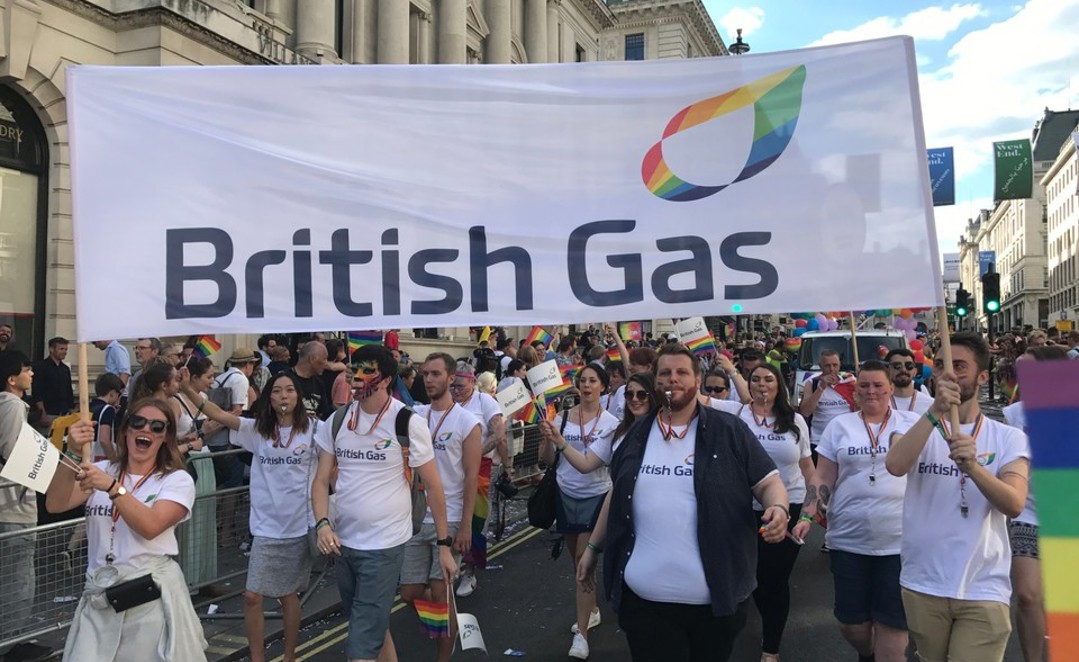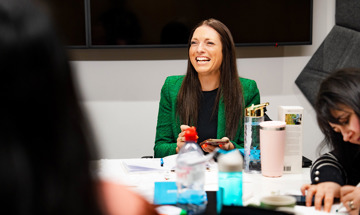It's June and as Co-Chair of Centrica's LGBTQ+ network my life has naturally been consumed with planning Pride Month events (no really, I'm not joking). Only this year, like the last, Pride Month has looked very different because of the ongoing Covid-19 pandemic. But that's not necessarily a bad thing. Whilst I must admit I've missed donning some glitter and a rainbow flag, I think this actually gives us all a great opportunity to take a step back and reflect on what Pride actually means. Because yes, the glitter, parties and parades are great, but Pride continues to represent so much more.
In many ways, the world looks significantly different for LGBTQ+ people than it did back in 1971 when the first members of our community took to the streets and marched in the first Pride parades. Back then, LGBTQ+ people were still very much in the shadows. We lived in secret, loved in secret. We were victims of abuse, police brutality, medical and psychiatric diagnosis. We were, in effect, punished because the way we looked, talked and loved were all different to what the rest of the world viewed as "normal". It was for exactly these reasons that Pride began in the first place - a culmination of violence, oppression and anger which, one night in 1969, resulted in the most significant uprising in LGBTQ+ history: the Stonewall riots. These riots are widely regarded as the catalyst for the Pride we know today; a march of defiance against the oppression and disadvantage that LGBTQ+ people all over the world had been subject to for as long as they could remember.
At Centrica, we're taking huge steps to drive the diversity and inclusion agenda across our organisation. We've recently published our Transitioning at Work guidelines, updated the terminology and pronouns we use on internal systems and have committed to printing the Progressive Pride flag and tagline 'open and inclusive for all' on the livery of all of our British Gas vans moving forward.
So why, then, does Pride still matter? Surely, 50 years on from that first Pride we can say that the world is a better place for the LGBTQ+ community? On the whole, the treatment, recognition and respect given to our community has improved massively. Equal marriage, equal blood donation rules, improving trans recognition - all amazing milestones which the community should rightfully celebrate. And you can see improvements in the way businesses are treating their LGBTQ+ workforce, too. Never before have I seen companies taking LGBTQ+ inclusion, any inclusion actually, as seriously as they are today. And I see this first-hand every day when I log on to work. At Centrica, we're taking huge steps to drive the diversity and inclusion agenda across our organisation. We've recently published our Transitioning at Work guidelines, updated the terminology and pronouns we use on internal systems and have committed to printing the Progressive Pride flag and tagline 'open and inclusive for all' on the livery of all of our British Gas vans moving forward.

That being said, there are indeed huge barriers which members of the LGBTQ+ community continue to face. You only have to look in the news to see it. UK government reluctance to ban conversion therapy, tick. Italian government refusal to introduce laws against LGBTQ+ discrimination, tick. US State laws which ban trans children from taking part in school sports, tick. Homophobia, biphobia, transphobia. This list goes on.
But why is this still happening? Why, after 50 years, are we still seeing the discrimination and marginalisation of Queer folk? To me, it boils down to three simple things: a lack of understanding, a lack of education and a fear from some inside and outside of the community to stand up for what is right. But that, for me, is why Pride remains as important as ever: it presents an opportunity - an obligation, in fact - for everyone to reflect and learn. Only with education, open and frank conversations, and a desire to learn and better ourselves will we be able to truly shift the paradigm.
This Pride Month, Spectrum are hosting a Lunch and Learn session with our charity partner LGBT Foundation and some informal education sessions with our colleagues to tackle just this. We're providing a safe space for people to come and ask questions and have open and honest conversations. We're shouting about our internal role models too, in the hope that this helps or inspires even just one colleague who may be struggling with their sexual orientation or gender identity.
So, this Pride Month, take some time to reflect on what Pride really means to you. It's only when I decided to look deeper into my own understanding that I realised Pride continues to stand for so much more than we think.

Case Study
Centrica's Market Leading Commitment to Trans Inclusion
Our people

Case Study
Chris O'Shea: The Employment Rights Bill will be good for business.
Our people

Case Study
In conversation with... Victoria Belkhyate
Our people

Case Study
Meet the Fathers of Centrica
Our people

Case Study
Black History Month: Reclaiming Narratives
Our people

Case Study
The Working Parents of Centrica
Our people
